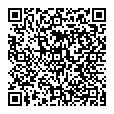Kenyan asparagus, Vietnamese tuna and European dinner tables were just some of the victims of the transport chaos caused by the Eyjafjallajökull volcano in Iceland in April 2010, according to EEA Signals 2011, a yearly story-based report from the European Environment Agency (EEA) released today in Szentendre, Hungary.
The eruption clearly illustrated the connectivity between some of the key systems underpinning our globalised society, from trade to health and the environment. This connectivity, its benefits and drawbacks, are key themes of Signals 2011, which tells its stories through the real life experiences of people around the globe.
Meet Chance – a child miner in the jungles of Congo and read how minerals that make our mobile phones work are connected to war and injustice in the developing world. Meet the Bhuyan family – members of a forest-dwelling tribe from east India – and read how global financial markets value the minerals in the forest but ignore the value of the forest to the people living there.
Professor Jacqueline McGlade, Executive Director of the EEA, said: "The environment connects us all. Many of the raw materials we use come from distant countries, and their extraction sometimes has unintended consequences. European consumption also produces a lot of waste.
"Signals shows that we need to think about the lifecycle of resources – where they come from, how we use them, how we recycle waste materials. This provides a global perspective, showing the opportunities and constraints in a modern, globalised world."
Dr. József Ángyán, Parliamentary Secretary, Ministry of Rural Development, Hungary said: "As the public consultation on the preparation of National Rural Development Strategy in Hungary has shown, these issues also pose a major challenge at local regional and national level. There is a huge potential in the wisdom and personal experience of local communities, complementing other data-gathering exercises and delivering a clear message for us all concerning the way forward."
While Chance and the Bhuyan family have very particular experiences and personal stories, their lives – like ours - are increasingly shaped by global forces which connect us all. As Europeans, our role is often as consumers. The European lifestyle, and the legitimate aspirations of billions of people to mirror this high-consumption way of life, will largely define our common future.
In 2012 we celebrate the 20th anniversary of the UN Earth Summit in Rio de Janeiro, which established sustainable development as a major political aim around the world. A ‘Rio+20’ meeting will try to reinvigorate and redefine sustainable development. With Signals 2011, the EEA starts on the road to Rio with a clear message: the poorest of the poor depend on the environment daily for survival. Sustainable development - with the eradication of poverty at its core - cannot succeed without securing, as a first principal, a healthy environment.
Notes to the editor
- Launch details: Szentendre, Hungary
- Date: Tuesday 28th June, 2011
- Venue: REC Conference Centre (2000 Szentendre, Ady Endre 9-11.)
- Time: 11:00
What is Signals?
Signals, published in all 26 EEA languages, takes a story-based approach to help us better communicate with Europe’s diverse population.
Signals stories can be reused, free of charge, in print or on the web. Please acknowledge the EEA and direct readers for more information to: eea.europa.eu/signals
- We would appreciate your feedback on Signals. E-mail us here: Signals@eea.europa.eu
Contact information
For media enquiries contact:
Iben Stanhardt
Press officer
E-mail: iben.stanhardt@eea.europa.eu
Phone: +45 3336 7168
Mobile: +45 2336 1381
Arthur Girling
Press officer
E-mail: arthur.girling@eea.europa.eu
Phone: +45 3336 7109
Mobile: +45 29604330

Document Actions
Share with others